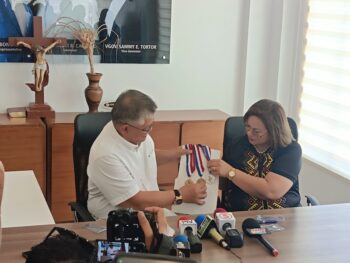Andrew Harding, BBC correspondent based in Bangkok, Thailand, said the documentary is part of BBC's special report on world food production.
While here, Harding and his camera man Darren Conway took video footages of fish landing at the General Santos City Fish Port Complex and did interviews with leaders of the local tuna industry and small fisherfolk.
Harding said a world wide alarm has been raised over the drop in tuna catch which was confirmed by local industry leaders.
In his interview with Marfenio Tan, one of the city's biggest tuna producers, Harding was told some countries in the Western Pacific region, particularly Papua New Guinea, is moving to regulate tuna fishing in its territorial waters and limit tuna catching to just several months of the year.
According to Tan, the move is to conserve and allow tuna stocks to replenish and breed.
Worldwide, there is also a move to reduce tuna catch by 50 per cent of the current level.
"Too many fishing vessels catching declining tuna stocks," Harding said.
General Santos City is the country's tuna capital.
In the first eight months of this year, the country exported $111 million worth of canned tuna products.
According to industry sources, however, canned tuna production level has dramatically gone down this year.
Tan said while the situation has not yet reached critical level, it is about time to take a closer look at and do concrete steps to conserve tuna stocks.
Harding is noted for his documentary on the tsunami disaster that hit southern Asia in 2005.
He also documented the landslide in Leyte which killed scores of residents.
His latest special report was the recent crackdown on protesting monks in Burma. (Edwin G. Espejo/MindaNews contributor)
